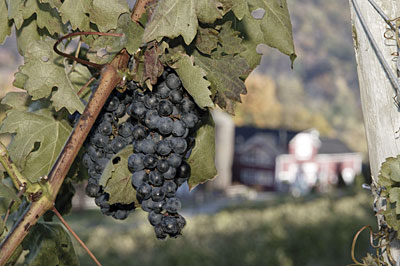Artisanal Food
Feedsee Food : Artisanal Food : Award honors traditional family-owned growing and production
Artisanal is a term used in food and food production to refer to products that are crafted in a traditional or non-mechanized way, often by skilled craftsmen or small businesses. The term suggests a focus on high-quality ingredients, traditional methods, and a significant level of hands-on production.
 The Gallo Family Vineyards Gold Medal Awards honor artisanal food producers across a variety of food categories. In 2006, the All Artisanal Award was presented to the family-owned business that best embodied exceptional artisanal food production. The awards recognized and promoted artisanal food producers who demonstrate excellence in preserving and supporting traditional ways of growing and producing food products. Entries were evaluated in culinary categories of bread/baked good, dairy, meat and charcuterie, fish and seafood, confectionary good, condiment, oil or vinegar, and fruit or vegetable.
The Gallo Family Vineyards Gold Medal Awards honor artisanal food producers across a variety of food categories. In 2006, the All Artisanal Award was presented to the family-owned business that best embodied exceptional artisanal food production. The awards recognized and promoted artisanal food producers who demonstrate excellence in preserving and supporting traditional ways of growing and producing food products. Entries were evaluated in culinary categories of bread/baked good, dairy, meat and charcuterie, fish and seafood, confectionary good, condiment, oil or vinegar, and fruit or vegetable.
How the term artisinal is used in the context of different foods
- Artisanal Baking: An artisanal baker might use traditional baking methods, perhaps fermenting dough slowly and baking in a wood-fired oven. The emphasis is on skill, craft, and time, rather than on mass-production and speed.
- Artisanal Cheeses: These cheeses are often made in small batches with milk from local farms, with careful attention paid to the process and tradition. Each cheese might be handcrafted and aged to achieve a specific flavor profile.
- Artisanal Meats: This might refer to sausages, cured meats, and other products that are made in-house using traditional methods and high-quality ingredients, often locally sourced.
- Artisanal Chocolate: Artisanal chocolate makers usually oversee the entire chocolate-making process, from sourcing the cacao beans to the final tempering of the chocolate, with a strong emphasis on quality and sustainability.
- Artisanal Beverages: This can include things like craft beer, wine, or spirits that are made in small batches, or even artisanal coffee or tea, which involves careful sourcing and preparation methods.
The use of the term artisanal is not regulated, so it's possible to see it used in many different ways, not all of which may live up to the traditional definition of the term. When used accurately, artisanal denotes a return to the roots of food production, prioritizing quality, tradition, and sustainability over mass production and industrialization.